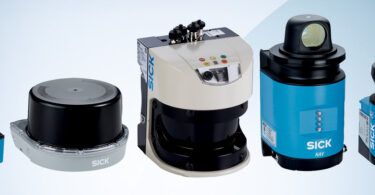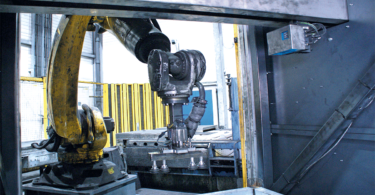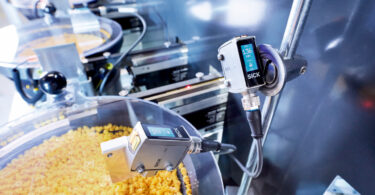AutoTool: how inspiration led to an innovative solution to increase efficiency on construction sites for SICK’s TiM$10K Challenge
This year’s first place winner of SICK’s TiM$10K Challenge consisted of six seniors from Texas A&M University. Mason Kleinecke, Harrison Vickers, Sophie Tullos, Hannah Wang, Kyler Christian, and Yan Yao collaborated to design a piece of technology named AutoTool, that would help solve tool inaccessibility and misplacement on a construction job site. Research shows that 30% of tool purchases are replacements for lost tools, so on top of solving tool misplacement itself, it could additionally save construction companies money.
Contest Background
For a third consecutive year, SICK put on the TiM$10K challenge for students across the country to participate in an innovative competition. Each year, SICK provides teams of students with a 270° SICK LiDAR sensor (TiM) and encourages them to tackle a problem in any industry, and create a solution using the provided technology. If you’re interested in learning more about the background of the TiM$10K challenge, you can find more information in this blog post.
 AutoTool is a wagon-like tool carrier that has tool tracking capabilities and autonomous navigation. The SICK TiM781 LiDAR sensor acts as the eyes of the technology and detects obstacles in a 270-degree range for the small autonomous vehicle. A Raspberry Pi camera is used for the AutoTool to detect the construction worker, using an Aruco code which is like a QR code. Lastly, an RFU610 RFID reader is placed at the center of the AutoTool and this keeps track of which tools are present or missing with RFID tags. The user is alerted with a red LED when there are missing tools.
AutoTool is a wagon-like tool carrier that has tool tracking capabilities and autonomous navigation. The SICK TiM781 LiDAR sensor acts as the eyes of the technology and detects obstacles in a 270-degree range for the small autonomous vehicle. A Raspberry Pi camera is used for the AutoTool to detect the construction worker, using an Aruco code which is like a QR code. Lastly, an RFU610 RFID reader is placed at the center of the AutoTool and this keeps track of which tools are present or missing with RFID tags. The user is alerted with a red LED when there are missing tools.
A combination of the education this team received at Texas A&M University and team representative Mason Kleinecke’s experience interning at a construction site led to the overall idea for the project.
“We were inspired by all the things we’ve learned and gained at Texas A&M to do something really special and in our case that meant creating a product that would hopefully improve the construction industry,” Kleinecke said.
AutoTool has three main goals, the first is to simply carry tools for any individual worker. The second is to follow the worker on the construction site while simultaneously avoiding obstacles. Lastly, AutoTool is there to keep an automated tool inventory and alert the worker when one is missing.
“Our design was refined over and over to get what it finally became. We started with the idea of tool tracking thinking we would have a GPS tracker on every tool, but once we started breaking down our needs and communicating with SICK, we realized they were willing to provide us with an RFID sensor. That sensor would be another means of identifying tools in the toolbox so our robot could move,” Kleinecke said.
During a unique semester for many college students due to the COVID-19 pandemic, the team was forced to do most of the project’s work virtually.
“For the first three to four months of the project, our team never met so I remember the first reunion. It was the beginning of December and that was a special moment. It was also a testament to the fact that virtual work can successfully happen,” Kleinecke said.
Using unfamiliar technology can be a difficult task, especially in a short period of time. The team faced challenges, particularly working with different software.
“The toughest part of our project was making all the elements work together. We had a camera looking at a QR code, a LiDAR sensor that was seeing all objects, an RFID sensor that was reading tools. These are three completely different technologies that don’t naturally communicate that had to work together on one computer board,” Kleinecke said.
Ultimately, this team of students from Texas A&M’s ability to reflect on their work and communicate effectively led them to lessons learned and a first-place victory.
“When you come into a project very eager, you want to create the best product that can do all things and solve all the problems. We really had to refine that for the time and money we were allotted. I think learning how to dial back and realize what our strengths and weaknesses were and fitting that within the seven-month scope was a lesson learned,” Kleinecke said.
Aside from the monetary award for winning the competition, the team is also given the opportunity to go on an all-inclusive trip to Germany to visit the SICK headquarters and manufacturing facility.
This contest was supported by PMMI Foundation’s U Skills Fund. PMMI Foundation works to grow awareness of careers in packaging and processing, providing assistance to schools and programs that develop students to excel in the industry.






